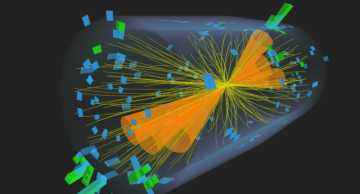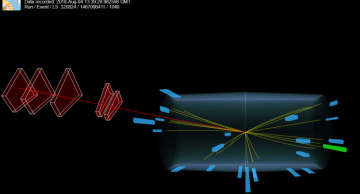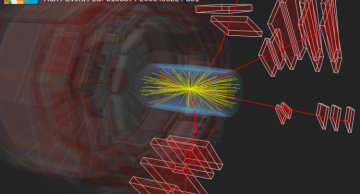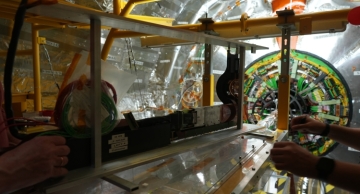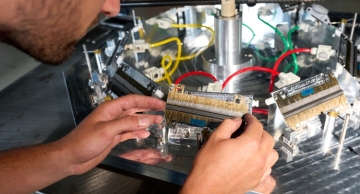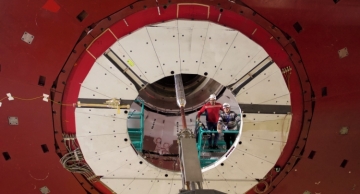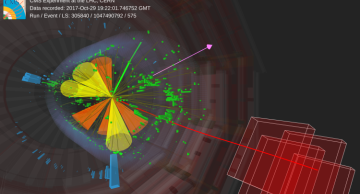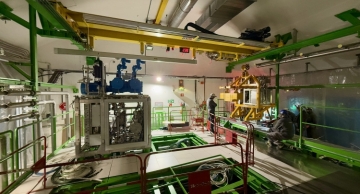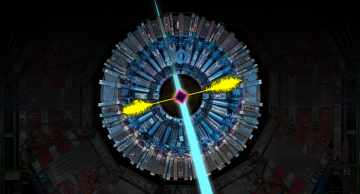The CMS experiment has conducted a search for heavy beyond-standard-model particles (referred to as a Z′ boson) that give rise to a top quark-antiquark pair decaying into hadrons. The search excludes the existence of the new Z′ boson with…
News
|
maiqbal |
Physics
|
adelanno |
Physics
The ratios of the B meson production fractions have been measured for the first time in the CMS experiment.
B mesons are composite particles consisting of a bottom antiquark and another type of quark, such as an up, down, or strange quark,…
|
maiqbal |
Physics
The CMS Collaboration announces 50 new results for Moriond 2025.
In Higgs physics, following a comprehensive research program aimed at characterizing the Higgs boson by measuring its properties and interactions across various decay and…
|
maiqbal |
Physics
CMS discovers associated production of a Z boson and an ϒ meson.
At the CMS experiment, we have observed for the first time an exceptionally rare process: the associated production of a Z boson with an ϒ(1S) meson, the lightest bound state of…
|
sohurst |
Detector
New BRIL subsystems illuminate CMS’s path through Run 3
After many months of meticulous preparations, new BRIL subsystems were installed in mid-January. The intervention will ensure that CMS can continue to achieve world leading accuracy in its…
|
sohurst |
Detector
The TBPS Rings are in production, offering an innovative design to incline sensors toward the LHC beam and maximise coverage. They are the first support structures in production for the new Tracker!
As part of the CMS Hi-Lumi Tracker, construction…
|
sohurst |
Detector
The first of the improved Resistive Plate Chambers for Hi-Lumi CMS were installed in record time during the LHC winter break.
The RPC Hi-Lumi CMS Project reached an important milestone at the start of 2025 by delivering the first half of its final…
|
maiqbal |
Physics
The Higgs boson is deeply connected to the mechanism that generates the masses of elementary particles. In the Standard Model (SM), which describes the properties of all elementary particles and the interactions among them, the Higgs boson…
|
sohurst |
Detector
CERN and CMS engineers and technicians have installed the first two of nine required next-generation carbon dioxide (CO2) cooling plants in the underground Service Cavern of the CMS experiment in Cessy, France, as well as two of the accumulators.…
|
sohurst |
Collaboration
2024 was an impressive year: the most data ever collected by CMS, many important results including two landmark results (W boson mass and top entanglement), milestone for the upcoming Hi-Lumi CMS detector reached, and ever more innovations pushing…
|
sohurst |
Engage with CMS
Art & Science Co-Lab at Art Genève 2025: A Meeting Point for Creativity and Innovation
The Art & Science Co-Lab invites guests, participants, and volunteers to engage in this collaborative initiative and explore new perspectives at the…
|
maiqbal |
Physics
CMS scientists discover some of the rarest collisions that the LHC can produce – such as the scattering of light by light – and learn more about the quantum nature of electromagnetism, search for new particles, and much more.
In everyday life…

